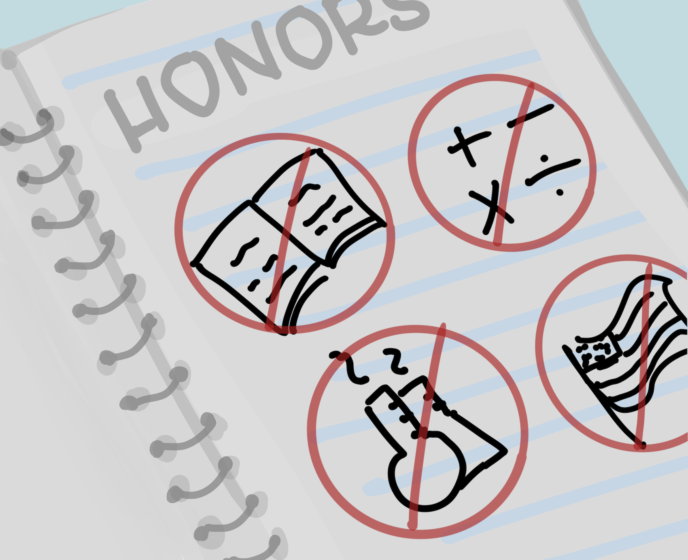
By Vy Nguyen
High schools throughout California are removing honors classes at the upperclassmen level—and some at the junior level—in the name of equity between students of different races, specifically for Black and Hispanic students.
Some schools making this shift include Patrick Henry High School (PHHS), Culver City High School (CCHS) and more, each with slightly different plans of how to alter classes. Though the change was meant as a positive initiative, which has been in effect since earlier this school year, parents’ protests and public uproar have underscored serious issues with the “one-size-fits-all” approach to education.
One of the earliest schools to announce their plan of removing honors classes was PHHS, the largest high school in San Diego with over 2,000 students. In an email thread dating April 13, 2022, PHHS Principal Michelle Irwin sent an email thread to all parents regarding the new decision. The email indicated the plan had already been scheduled for the next school year, suggesting parents and students had no opportunity for input beforehand.
Notably, PHHS is rated with an equity score of six out of 10. Due to honors classes allegedly not recruiting enough Black and Hispanic students, noted Irwin, she believed honors classes were “stratifying,” causing gaps between racial classes and creating a stigma surrounding non-honors classes. PHHS was reported to reverse the decision, but only for a couple of classes, leaving several classes that have been converted to regular.
Following suit was CCHS, which removed honors English classes in fall 2022, along with Troy High School for the 2024-25 school year, with a possibility of several other schools considering the same policy.
Immediately after the decision, many parents and students demanded for further information or even a reversal, stating the policy had severe shortcomings. For parents, they believed their children were no longer academically challenged and a lack of honors credit could negatively affect their chances at college admissions. In a petition led by Tracy Owens from Troy School District, the top problems she mentioned also included negative effects for students with learning disabilities, as they will have to keep up with former honors students, as well as struggles for teachers who need to adjust methods for different types of students.
At Fountain Valley High School (FVHS), honors classes are offered in every core subject of science, math, English and history, as well as for certain electives. Aside from honors-weighted classes, many classes are offered at the advanced level, like Accelerated Geometry. A slew of classes have even been upgraded to honors in recent years, including Honors Biology for the 2022-23 school year, previously Accelerated Biology, along with a three-year pathway of new honors History/ MUN classes that will be implemented next school year.
FVHS Sophomore Brandon Doan is a student currently in regular CP English 2, with a history of having taken honors English classes before, plus Algebra 2. Though not an honors class, one of the advanced classes he is also taking is AP European History, which gives him an insight into the major differences between a more advanced class and a non-advanced one.
“Most of the advanced classes I’ve been in [are] more focused on developing our critical thinking skills and learning [in a way] that allows us growth,” Doan said. “Regular classes…are more focused on having us understand. The lessons and assignments are pretty straightforward.”
Doan’s motivation for taking an advanced course stems from a desire to challenge himself in areas he is passionate about, while reserving non-advanced alternatives for subjects he has less interest in.
“If you remove honor classes and AP classes, it would shape the regular education environment [to be] even more competitive, as now high academically-achieving students will strive more,” Doan said. “As the standard rises, students performing at the regular level would do much worse, causing more issues.”
Taking this into consideration, equity concerns may persist, as high-achieving students will continue to perform well in regular classes. For teachers who curve grades, this will increase the gap between honors students and regular students. Except now, instead of a gap between a separate honors class and regular class, it will coexist within the same environment.
Thus, some parents believe that the root of this equity issue, which is the lack of representation in honors courses, won’t be addressed by just “removing” honors classes.
“The district has not addressed the underlying issues of underrepresentation experienced by Black and Brown students in honors classes and has replaced previous honors English content with a one size fits all class that is not serving the interests of many students,” one parent said in a CCHS board meeting. “In particular, [it] does not specifically address the need for additional support for underperforming students, while also ignoring the needs of high performing [students].”
As protests over removing honors classes continue to rise to this day, school districts in California are left to consider the larger question that has plagued the US education system: what is equity, really?





